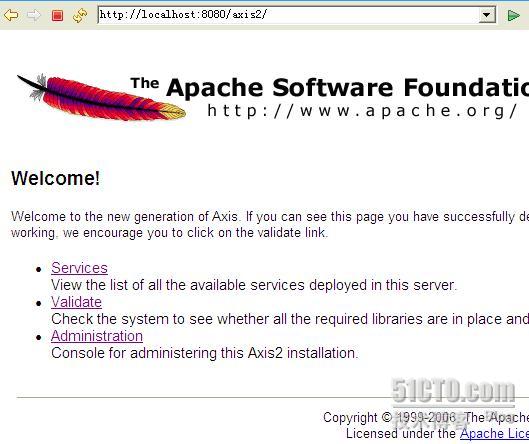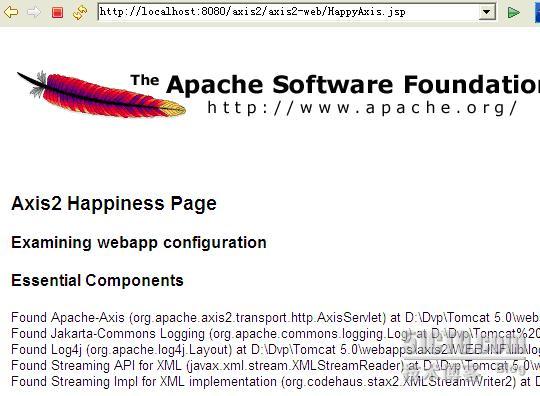- 在线预览 Word 文档
你不讲 wood
word开发语言前端vue.jsjavascriptnode.jsdocx-preview
引言随着互联网技术的发展,Web应用越来越复杂,用户对在线办公的需求也日益增加。在许多业务场景中,能够直接在浏览器中预览Word文档是一个非常实用的功能。这不仅可以提高用户体验,还能减少用户操作步骤,提升效率。实现原理1.后端服务假设后端服务已经提供了两个API接口:getFilesList:获取文件列表。previewFile:获取指定文件的内容。constexpress=require('ex
- 语聊房软件开发流程与基础功能
ALLSectorSorft
javahtml5javascript
开发一款语聊房软件需要系统的规划和多领域技术整合。以下是关键流程、基础功能及示例代码:---一、开发流程1.需求分析-明确目标用户(社交/游戏/教育)-竞品分析(Clubhouse/Discord/狼人杀)-核心功能优先级排序2.技术选型-实时语音:声网Agora(推荐)/腾讯云TRTC/WebRTC-即时通讯:Socket.io/Sendbird/Firebase-后端框架:Node.js/Sp
- Vue.js 基础与实战指南:从入门到跑路
王嘉俊705
前端javascriptvisualstudiocodehtml前端vue.js
一、Vue的两种使用方式扩展核心包开发直接通过引入Vue.js,适用于简单页面或局部功能增强。优点:轻量,无需构建工具。缺点:难以管理复杂项目,缺少工程化支持。工程化开发使用VueCLI、Vite等工具创建项目,结合Webpack/Vite构建。支持单文件组件(.vue文件),结构清晰(`,,)。插件生态丰富(如VueRouter、Vuex、Pinia)。二、Vue实例的深入理解核心配置项 new
- 关于个人财务系统的javaweb小项目
竹木有心
tomcatjava
个人财务管理系统-项目计划书1.项目背景与目的随着现代社会的进步与人们收入水平的提高,个人财务的管理变得越来越重要。如何有效地记录、管理、分析个人的收支状况,成为了很多人关注的焦点。本项目旨在设计并实现一个基于JavaWeb技术的个人财务管理系统,通过该系统,用户可以轻松管理自己的收入与支出,查看财务统计分析,帮助用户进行财务规划与控制。本系统适用于大三学生的课程设计要求,涉及JavaWeb技术、
- Docker Compose部署大语言模型LLaMa3+可视化UI界面Open WebUI
m0_74824877
docker语言模型ui
一、介绍Ollama:部署+运行大语言模型的软件LLaMa3:史上最强开源AI大模型—Meta公司新发布的大语言模型OpenWebUI:AI用户界面,可通过浏览器访问二、Docker部署docker-compose.yml文件如下:version:'3'services:ollama:container_name:bruce-ollamaimage:ollama/ollamavolumes:-./
- webpack性能优化策略
雅望天堂i
webpack前端node.js
1.代码分割(CodeSplitting)通过代码分割,可以将代码拆分成多个较小的文件,实现按需加载,减少首屏加载时间。使用SplitChunksPlugin将公共代码提取到单独的chunk中,避免重复打包。config.optimization.splitChunks({chunks:'all',cacheGroups:{//第三方组件libs:{name:'chunk-libs',test:/
- ECMAScript与JavaScript:探索两者之间的联系与区别
程序媛小果
前端ecmascriptjavascript前端
在Web开发的早期,JavaScript成为了客户端脚本语言的代名词,而随着时间的推移,JavaScript已经发展成为一个功能强大的语言,它的影响力远远超出了浏览器的范畴。在这场语言演进的过程中,ECMAScript扮演了一个关键角色。本文将深入探讨ECMAScript与JavaScript之间的关系,以及它们之间的主要区别。1.什么是ECMAScript?ECMAScript是由欧洲计算机制造
- CSS 滚动条样式修改(详细)
mr_cmx
csscss3html
1、滚动条整体部分使用::-webkit-scrollbar示例:.container::-webkit-scrollbar{width:20px;//修改滚动条宽度}2、滚动条中的滑块使用::-webkit-scrollbar-thumb示例:.container::-webkit-scrollbar-thumb{border-radius:8px;box-shadow:inset005pxrg
- 知识图谱构建概念、工具、实例调研
熟悉的黑曼巴
知识图谱人工智能
一、知识图谱的概念知识图谱(Knowledgegraph)知识图谱是一种用图模型来描述知识和建模世界万物之间的关联关系的技术方法。知识图谱由节点和边组成。节点可以是实体,如一个人、一本书等,或是抽象的概念,如人工智能、知识图谱等。边可以是实体的属性,如姓名、书名或是实体之间的关系,如朋友、配偶。知识图谱的早期理念来自SemanticWeb(语义网络),其最初理想是把基于文本链接的万维网落转化为基于
- Windows 环境下配置多个不同版本的 Maven
阿绵
后端windowsmavenjava
在实际开发中,不同的项目可能需要使用不同版本的Maven。例如,老项目可能依赖于Maven3.3,而新项目可能需要Maven3.8+才能正常运行。因此,在Windows下配置多个Maven版本并能方便地切换是非常必要的1.下载并安装多个Maven版本1.1下载Maven访问ApacheMaven官网,根据需要下载不同版本的Maven。例如:ApacheMaven3.3.9ApacheMaven3.
- 【系统架构设计师】系统性能之性能指标
王佑辉
系统架构设计师系统架构
目录1.说明2.计算机的性能指标3.路由器的性能指标4.交换机的性能指标5.网络的性能指标6.操作系统的性能指标7.数据库管理系统的性能指标8.Web服务器的性能指标9.例题9.1例题11.说明1.性能指标是软、硬件的性能指标的集成。2.在硬件中,包括计算机、各种通信交换设备、各类网络设备等;在软件中,包括操作系统、数据库、网络协议以及应用程序等。2.计算机的性能指标1.评价计算机的主要性能指标有
- [附源码]计算机毕业设计基于SpringBoot的小说阅读系统
计算机毕设程序设计
springbootjava后端
项目运行环境配置:Jdk1.8+Tomcat7.0+Mysql+HBuilderX(Webstorm也行)+Eclispe(IntelliJIDEA,Eclispe,MyEclispe,Sts都支持)。项目技术:SSM+mybatis+Maven+Vue等等组成,B/S模式+Maven管理等等。环境需要1.运行环境:最好是javajdk1.8,我们在这个平台上运行的。其他版本理论上也可以。2.ID
- 认识Spring IoC容器和组件
Mr_Zerone
SpringFrameworkspringjava后端
1.传统Web项目开发流程传统Web项目在实现业务流程时,往往需要将Controller/Service/Dao,这三层先分别创建一个全局属性,上图中用BookController/BookService/BookDao来具体说明。当浏览器发送过来请求时,我们先调用全局属性中的BookCotroller对象bookController,在bookController中引用全局属性中的BookSer
- 安装配置MAVEN
ByteVoyager
mavenjava
安装配置MAVEN1.获取安装包下载apache-maven-3.8.1-bin.zip,下载地址:https://archive.apache.org/dist/maven/maven-3/3.8.1/binaries/apache-maven-3.8.1-bin.zip。2.解压maven压缩包3.配置maven环境变量新建环境变量MAVEN_HOME:右击【此电脑】->【属性】->【高级系统
- 2025年全国CTF夺旗赛-从零基础入门到竞赛,看这一篇就稳了!
白帽安全-黑客4148
安全web安全网络网络安全CTF
目录一、CTF简介二、CTF竞赛模式三、CTF各大题型简介四、CTF学习路线4.1、初期1、html+css+js(2-3天)2、apache+php(4-5天)3、mysql(2-3天)4、python(2-3天)5、burpsuite(1-2天)4.2、中期1、SQL注入(7-8天)2、文件上传(7-8天)3、其他漏洞(14-15天)4.3、后期五、CTF学习资源5.1、CTF赛题复现平台5.
- 2025年全国CTF夺旗赛-从零基础入门到竞赛,看这一篇就稳了!
白帽安全-黑客4148
网络安全web安全linux密码学CTF
目录一、CTF简介二、CTF竞赛模式三、CTF各大题型简介四、CTF学习路线4.1、初期1、html+css+js(2-3天)2、apache+php(4-5天)3、mysql(2-3天)4、python(2-3天)5、burpsuite(1-2天)4.2、中期1、SQL注入(7-8天)2、文件上传(7-8天)3、其他漏洞(14-15天)4.3、后期五、CTF学习资源5.1、CTF赛题复现平台5.
- zookeeper从入门到精通
小四的快乐生活
zookeeper分布式云原生
一、入门基础1.1什么是ZooKeeperZooKeeper是一个开源的分布式协调服务,由雅虎创建,后成为Apache的顶级项目。它为分布式应用提供了高效、可靠的协调服务,例如统一命名服务、配置管理、分布式锁、集群管理等。ZooKeeper的数据模型类似文件系统,以树形结构存储数据,每个节点称为Znode,每个Znode可以存储数据和子节点。1.2安装与启动下载ZooKeeper:从ApacheZ
- JavaScript的魔法世界:巧妙之处与实战技巧
skyksksksksks
综合个人杂记javascript开发语言html5css前端
一、从浏览器玩具到全栈利器的蜕变之路JavaScript诞生于1995年,原本只是网景公司为浏览器设计的"小脚本"。谁能想到这个曾被戏称为"玩具语言"的家伙,如今已蜕变成支撑现代Web开发的擎天柱?就像一只破茧成蝶的幼虫,JavaScript经历了ECMAScript标准的持续进化,在Node.js的加持下突破了浏览器的桎梏,实现了从客户端到服务端的华丽转身。V8引擎的涡轮增压让它跑得比猎豹还快,
- uniapp 使用web-view 来套地址实现分离式打包
luckycoke
uni-appjavascript前端
exportdefault{data(){return{title:'http://www.baidu.cn/'//你可以根据需要替换成你的URL};},mounted(){//在应用启动时清除本地缓存this.clearAppCache();},methods:{clearAppCache(){if(uni.getSystemInfoSync().platform==='android'){//
- 前端504错误分析
ox0080
#北漂+滴滴出行WebVIP激励前端
前端出现504错误(网关超时)通常是由于代理服务器未能及时从上游服务获取响应。以下是详细分析步骤和解决方案:1.确认错误来源504含义:代理服务器(如Nginx、Apache)在等待后端服务响应时超时。常见架构:前端→代理服务器→后端服务,问题通常出在代理与后端之间。2.排查步骤(1)检查后端服务状态确认服务是否运行:通过日志或监控工具(如systemctlstatus,KubernetesPod
- 【2025年】全国CTF夺旗赛-从零基础入门到竞赛,看这一篇就稳了!
网安詹姆斯
web安全CTF网络安全大赛pythonlinux
【2025年】全国CTF夺旗赛-从零基础入门到竞赛,看这一篇就稳了!基于入门网络安全/黑客打造的:黑客&网络安全入门&进阶学习资源包目录一、CTF简介二、CTF竞赛模式三、CTF各大题型简介四、CTF学习路线4.1、初期1、html+css+js(2-3天)2、apache+php(4-5天)3、mysql(2-3天)4、python(2-3天)5、burpsuite(1-2天)4.2、中期1、S
- 前端基础入门:HTML、CSS 和 JavaScript
阿绵
前端前端htmlcssjs
在现代网页开发中,前端技术扮演着至关重要的角色。无论是个人网站、企业官网,还是复杂的Web应用程序,前端开发的基础技术HTML、CSS和JavaScript都是每个开发者必须掌握的核心技能。本文将详细介绍这三者的基本概念及其应用一、HTML——网页的骨架HTML(HyperTextMarkupLanguage)是构建网页的基础语言。它是网页的结构和内容的标记语言,决定了网页上的文本、图像、表单等元
- Python's SQLAlchemy and Object-Relational Mapping
zhanglizhuo
Python
Acommontaskwhenprogramminganywebserviceistheconstructionofasoliddatabasebackend.Inthepast,programmerswouldwriterawSQLstatements,passthemtothedatabaseengineandparsethereturnedresultsasanormalarrayofrec
- MapReduce 读取 Hive ORC ArrayIndexOutOfBoundsException: 1024 异常解决
一张假钞
mapreducehive大数据
个人博客地址:MapReduce读取HiveORCArrayIndexOutOfBoundsException:1024异常解决|一张假钞的真实世界在MR处理ORC的时候遇到如下异常:Exceptioninthread"main"java.lang.ArrayIndexOutOfBoundsException:1024atorg.apache.orc.impl.RunLengthIntegerRe
- Fastgpt接入Whisper本地模型实现语音识别输入
泰山AI
AI大模型应用开发AI语音模型gptragfastgpt
前言FastGPT默认使用了OpenAI的LLM模型和语音识别模型,如果想要私有化部署的话,可以使用openai开源模型Whisper。参考文章《openai开源模型Whisper语音转文本模型下载使用》FastGPT接入本地AI语音TTS首先打开one-api网址添加一个自定义渠道设置BaseUrl、模型、鉴权等信息BaseUrl为你部署本地语音识别web项目baseurl,图标上的是以我写的开
- python邮件发送哪个好_(原创)python发送邮件
加勒比考斯
python邮件发送哪个好
这段时间一直在学习flask框架,看到flask扩展中有一个mail插件,所以今天就给大家演示如果发邮件。首先我注册了一个163邮箱,需要开启smtp功能,(网易的电子邮件服务器)。注册好163邮箱,然后开启smtp功能,如下图所示:开启的过程中需要绑定手机。我最终实现的样子是这样的:使用flask搭建了一个web服务器,然后做了一个网页,将收件人,主题,正文填好之后,点击发送,上面会显示发送结果
- ws协议与http协议的异同_Socket、WebSocket 、HTTP 与 TCP有什么区别
雪言AR纯
ws协议与http协议的异同
0、为什么需要WebSocket?Browser已经支持http协议,为什么还要开发一种新的WebSocket协议呢?我们知道http协议是一种单向的网络协议,在建立连接后,它只允许Browser/UA(UserAgent)向WebServer发出请求资源后,WebServer才能返回相应的数据。而WebServer不能主动的推送数据给Browser/UA,当初这么设计http协议也是有原因的,假
- C# 语法 vs. C++ 语法:全面对比与核心区别解析
不会编程的程序猿ᅟ
c#c++开发语言
引言C#和C++是两种广泛使用的编程语言,分别由微软和BjarneStroustrup开发。尽管它们都属于C语言家族,但在语法、特性和应用场景上存在显著差异。本文将从多个角度详细对比C#和C++的语法区别,帮助你更好地理解这两种语言的特点。一、语言设计目标1.C#设计目标:C#是一种现代化的、面向对象的编程语言,旨在简化开发过程,提高开发效率。主要应用:Windows应用、Web开发、游戏开发(U
- WebSocket(WS)协议系列(二)事件机制
是纯一呀
网络WebSocketwebsocketpython网络协议
通讯双方怎么知道对方什么时候会发消息过来并接收的,是通过轮询吗?轮询是指客户端定期向服务器发送请求,检查是否有新的数据(即客户端不断发起请求)。就是你的舔狗,每天定时定点发消息问你,在吗?睡了吗?看电影吗?检查你是否有想和ta说话的意愿。你说话了,就是有新的数据,ta就get到了。WebSocket不使用传统的轮询机制,它通过事件驱动的方式处理消息的接收和发送。而WebSocket连接在建立后是持
- 【FastAPI 】FastAPI 模板:提供静态文件
iFakeCoder
Flaskfastapipython开发语言
FastAPI是一个现代、快速(高性能)的Web框架,用于基于标准Python类型提示使用Python3.7+构建API。虽然它的主要用例是构建API,但FastAPI还可以轻松提供静态文件和HTML模板,从而让您可以构建全栈Web应用程序。在此博客中,我们将探讨如何使用FastAPI提供静态文件。我们将介绍基础知识并提供演示以帮助您入门。为什么要提供静态文件?静态文件是不经常更改的资产,并按原样
- Spring的注解积累
yijiesuifeng
spring注解
用注解来向Spring容器注册Bean。
需要在applicationContext.xml中注册:
<context:component-scan base-package=”pagkage1[,pagkage2,…,pagkageN]”/>。
如:在base-package指明一个包
<context:component-sc
- 传感器
百合不是茶
android传感器
android传感器的作用主要就是来获取数据,根据得到的数据来触发某种事件
下面就以重力传感器为例;
1,在onCreate中获得传感器服务
private SensorManager sm;// 获得系统的服务
private Sensor sensor;// 创建传感器实例
@Override
protected void
- [光磁与探测]金吕玉衣的意义
comsci
这是一个古代人的秘密:现在告诉大家
信不信由你们:
穿上金律玉衣的人,如果处于灵魂出窍的状态,可以飞到宇宙中去看星星
这就是为什么古代
- 精简的反序打印某个数
沐刃青蛟
打印
以前看到一些让求反序打印某个数的程序。
比如:输入123,输出321。
记得以前是告诉你是几位数的,当时就抓耳挠腮,完全没有思路。
似乎最后是用到%和/方法解决的。
而今突然想到一个简短的方法,就可以实现任意位数的反序打印(但是如果是首位数或者尾位数为0时就没有打印出来了)
代码如下:
long num, num1=0;
- PHP:6种方法获取文件的扩展名
IT独行者
PHP扩展名
PHP:6种方法获取文件的扩展名
1、字符串查找和截取的方法
1
$extension
=
substr
(
strrchr
(
$file
,
'.'
), 1);
2、字符串查找和截取的方法二
1
$extension
=
substr
- 面试111
文强chu
面试
1事务隔离级别有那些 ,事务特性是什么(问到一次)
2 spring aop 如何管理事务的,如何实现的。动态代理如何实现,jdk怎么实现动态代理的,ioc是怎么实现的,spring是单例还是多例,有那些初始化bean的方式,各有什么区别(经常问)
3 struts默认提供了那些拦截器 (一次)
4 过滤器和拦截器的区别 (频率也挺高)
5 final,finally final
- XML的四种解析方式
小桔子
domjdomdom4jsax
在平时工作中,难免会遇到把 XML 作为数据存储格式。面对目前种类繁多的解决方案,哪个最适合我们呢?在这篇文章中,我对这四种主流方案做一个不完全评测,仅仅针对遍历 XML 这块来测试,因为遍历 XML 是工作中使用最多的(至少我认为)。 预 备 测试环境: AMD 毒龙1.4G OC 1.5G、256M DDR333、Windows2000 Server
- wordpress中常见的操作
aichenglong
中文注册wordpress移除菜单
1 wordpress中使用中文名注册解决办法
1)使用插件
2)修改wp源代码
进入到wp-include/formatting.php文件中找到
function sanitize_user( $username, $strict = false
- 小飞飞学管理-1
alafqq
管理
项目管理的下午题,其实就在提出问题(挑刺),分析问题,解决问题。
今天我随意看下10年上半年的第一题。主要就是项目经理的提拨和培养。
结合我自己经历写下心得
对于公司选拔和培养项目经理的制度有什么毛病呢?
1,公司考察,选拔项目经理,只关注技术能力,而很少或没有关注管理方面的经验,能力。
2,公司对项目经理缺乏必要的项目管理知识和技能方面的培训。
3,公司对项目经理的工作缺乏进行指
- IO输入输出部分探讨
百合不是茶
IO
//文件处理 在处理文件输入输出时要引入java.IO这个包;
/*
1,运用File类对文件目录和属性进行操作
2,理解流,理解输入输出流的概念
3,使用字节/符流对文件进行读/写操作
4,了解标准的I/O
5,了解对象序列化
*/
//1,运用File类对文件目录和属性进行操作
//在工程中线创建一个text.txt
- getElementById的用法
bijian1013
element
getElementById是通过Id来设置/返回HTML标签的属性及调用其事件与方法。用这个方法基本上可以控制页面所有标签,条件很简单,就是给每个标签分配一个ID号。
返回具有指定ID属性值的第一个对象的一个引用。
语法:
&n
- 励志经典语录
bijian1013
励志人生
经典语录1:
哈佛有一个著名的理论:人的差别在于业余时间,而一个人的命运决定于晚上8点到10点之间。每晚抽出2个小时的时间用来阅读、进修、思考或参加有意的演讲、讨论,你会发现,你的人生正在发生改变,坚持数年之后,成功会向你招手。不要每天抱着QQ/MSN/游戏/电影/肥皂剧……奋斗到12点都舍不得休息,看就看一些励志的影视或者文章,不要当作消遣;学会思考人生,学会感悟人生
- [MongoDB学习笔记三]MongoDB分片
bit1129
mongodb
MongoDB的副本集(Replica Set)一方面解决了数据的备份和数据的可靠性问题,另一方面也提升了数据的读写性能。MongoDB分片(Sharding)则解决了数据的扩容问题,MongoDB作为云计算时代的分布式数据库,大容量数据存储,高效并发的数据存取,自动容错等是MongoDB的关键指标。
本篇介绍MongoDB的切片(Sharding)
1.何时需要分片
&nbs
- 【Spark八十三】BlockManager在Spark中的使用场景
bit1129
manager
1. Broadcast变量的存储,在HttpBroadcast类中可以知道
2. RDD通过CacheManager存储RDD中的数据,CacheManager也是通过BlockManager进行存储的
3. ShuffleMapTask得到的结果数据,是通过FileShuffleBlockManager进行管理的,而FileShuffleBlockManager最终也是使用BlockMan
- yum方式部署zabbix
ronin47
yum方式部署zabbix
安装网络yum库#rpm -ivh http://repo.zabbix.com/zabbix/2.4/rhel/6/x86_64/zabbix-release-2.4-1.el6.noarch.rpm 通过yum装mysql和zabbix调用的插件还有agent代理#yum install zabbix-server-mysql zabbix-web-mysql mysql-
- Hibernate4和MySQL5.5自动创建表失败问题解决方法
byalias
J2EEHibernate4
今天初学Hibernate4,了解了使用Hibernate的过程。大体分为4个步骤:
①创建hibernate.cfg.xml文件
②创建持久化对象
③创建*.hbm.xml映射文件
④编写hibernate相应代码
在第四步中,进行了单元测试,测试预期结果是hibernate自动帮助在数据库中创建数据表,结果JUnit单元测试没有问题,在控制台打印了创建数据表的SQL语句,但在数据库中
- Netty源码学习-FrameDecoder
bylijinnan
javanetty
Netty 3.x的user guide里FrameDecoder的例子,有几个疑问:
1.文档说:FrameDecoder calls decode method with an internally maintained cumulative buffer whenever new data is received.
为什么每次有新数据到达时,都会调用decode方法?
2.Dec
- SQL行列转换方法
chicony
行列转换
create table tb(终端名称 varchar(10) , CEI分值 varchar(10) , 终端数量 int)
insert into tb values('三星' , '0-5' , 74)
insert into tb values('三星' , '10-15' , 83)
insert into tb values('苹果' , '0-5' , 93)
- 中文编码测试
ctrain
编码
循环打印转换编码
String[] codes = {
"iso-8859-1",
"utf-8",
"gbk",
"unicode"
};
for (int i = 0; i < codes.length; i++) {
for (int j
- hive 客户端查询报堆内存溢出解决方法
daizj
hive堆内存溢出
hive> select * from t_test where ds=20150323 limit 2;
OK
Exception in thread "main" java.lang.OutOfMemoryError: Java heap space
问题原因: hive堆内存默认为256M
这个问题的解决方法为:
修改/us
- 人有多大懒,才有多大闲 (评论『卓有成效的程序员』)
dcj3sjt126com
程序员
卓有成效的程序员给我的震撼很大,程序员作为特殊的群体,有的人可以这么懒, 懒到事情都交给机器去做 ,而有的人又可以那么勤奋,每天都孜孜不倦得做着重复单调的工作。
在看这本书之前,我属于勤奋的人,而看完这本书以后,我要努力变成懒惰的人。
不要在去庞大的开始菜单里面一项一项搜索自己的应用程序,也不要在自己的桌面上放置眼花缭乱的快捷图标
- Eclipse简单有用的配置
dcj3sjt126com
eclipse
1、显示行号 Window -- Prefences -- General -- Editors -- Text Editors -- show line numbers
2、代码提示字符 Window ->Perferences,并依次展开 Java -> Editor -> Content Assist,最下面一栏 auto-Activation
- 在tomcat上面安装solr4.8.0全过程
eksliang
Solrsolr4.0后的版本安装solr4.8.0安装
转载请出自出处:
http://eksliang.iteye.com/blog/2096478
首先solr是一个基于java的web的应用,所以安装solr之前必须先安装JDK和tomcat,我这里就先省略安装tomcat和jdk了
第一步:当然是下载去官网上下载最新的solr版本,下载地址
- Android APP通用型拒绝服务、漏洞分析报告
gg163
漏洞androidAPP分析
点评:记得曾经有段时间很多SRC平台被刷了大量APP本地拒绝服务漏洞,移动安全团队爱内测(ineice.com)发现了一个安卓客户端的通用型拒绝服务漏洞,来看看他们的详细分析吧。
0xr0ot和Xbalien交流所有可能导致应用拒绝服务的异常类型时,发现了一处通用的本地拒绝服务漏洞。该通用型本地拒绝服务可以造成大面积的app拒绝服务。
针对序列化对象而出现的拒绝服务主要
- HoverTree项目已经实现分层
hvt
编程.netWebC#ASP.ENT
HoverTree项目已经初步实现分层,源代码已经上传到 http://hovertree.codeplex.com请到SOURCE CODE查看。在本地用SQL Server 2008 数据库测试成功。数据库和表请参考:http://keleyi.com/a/bjae/ue6stb42.htmHoverTree是一个ASP.NET 开源项目,希望对你学习ASP.NET或者C#语言有帮助,如果你对
- Google Maps API v3: Remove Markers 移除标记
天梯梦
google maps api
Simply do the following:
I. Declare a global variable:
var markersArray = [];
II. Define a function:
function clearOverlays() {
for (var i = 0; i < markersArray.length; i++ )
- jQuery选择器总结
lq38366
jquery选择器
1 2 3 4 5 6 7 8 9 10 11 12 13 14 15 16 17 18 19 20 21 22 23 24 25 26 27 28 29 30 31 32 33 34 35 36 37 38 39 40
- 基础数据结构和算法六:Quick sort
sunwinner
AlgorithmQuicksort
Quick sort is probably used more widely than any other. It is popular because it is not difficult to implement, works well for a variety of different kinds of input data, and is substantially faster t
- 如何让Flash不遮挡HTML div元素的技巧_HTML/Xhtml_网页制作
刘星宇
htmlWeb
今天在写一个flash广告代码的时候,因为flash自带的链接,容易被当成弹出广告,所以做了一个div层放到flash上面,这样链接都是a触发的不会被拦截,但发现flash一直处于div层上面,原来flash需要加个参数才可以。
让flash置于DIV层之下的方法,让flash不挡住飘浮层或下拉菜单,让Flash不档住浮动对象或层的关键参数:wmode=opaque。
方法如下:
- Mybatis实用Mapper SQL汇总示例
wdmcygah
sqlmysqlmybatis实用
Mybatis作为一个非常好用的持久层框架,相关资料真的是少得可怜,所幸的是官方文档还算详细。本博文主要列举一些个人感觉比较常用的场景及相应的Mapper SQL写法,希望能够对大家有所帮助。
不少持久层框架对动态SQL的支持不足,在SQL需要动态拼接时非常苦恼,而Mybatis很好地解决了这个问题,算是框架的一大亮点。对于常见的场景,例如:批量插入/更新/删除,模糊查询,多条件查询,联表查询,


